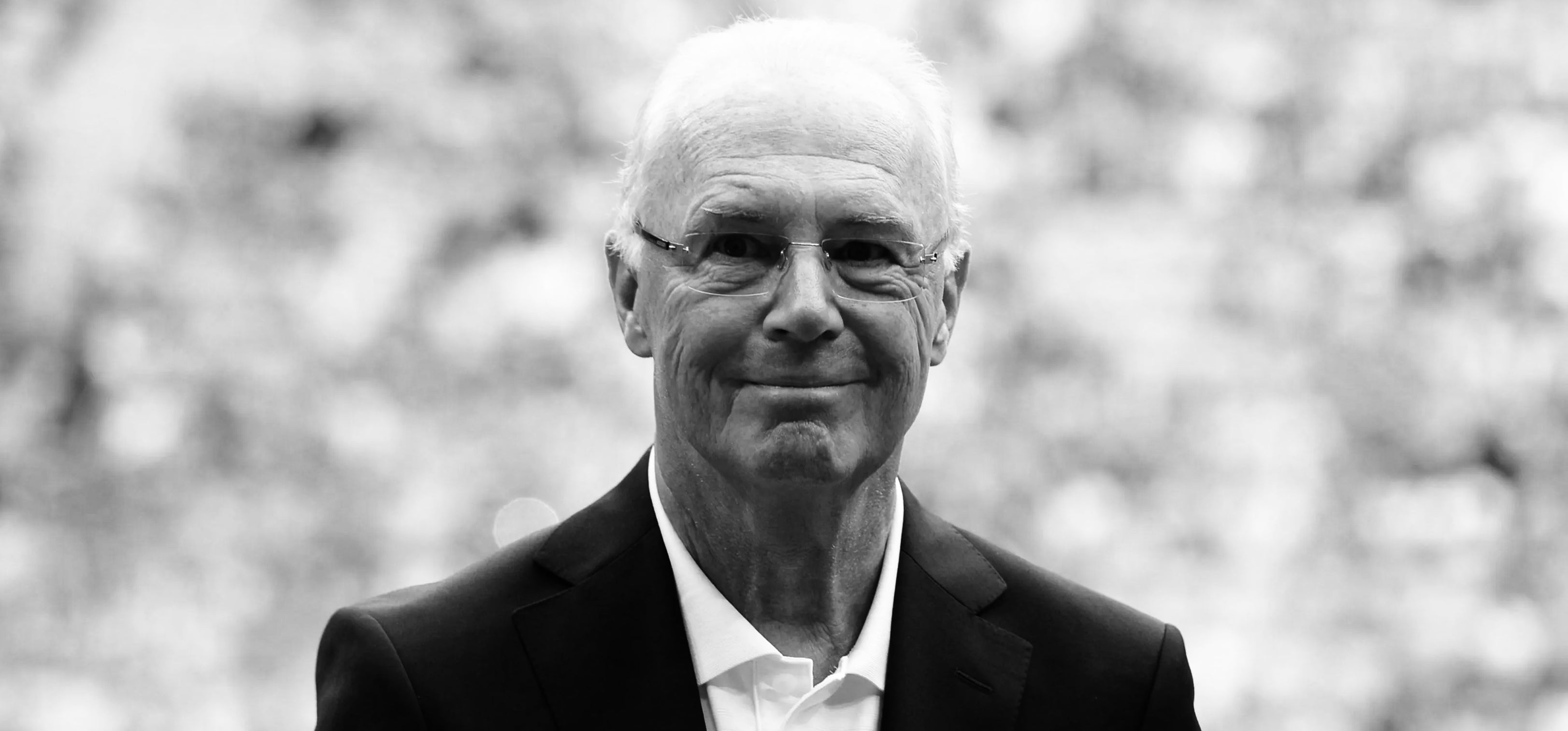
Franz Beckenbauer: The Legend Who Revolutionized Football
Franz Beckenbauer, often hailed as "The Emperor" and "The Kaiser" of football, was more than just a player and a manager; he was a revolutionary force that transformed the game. Born in the ruins of post-war Germany in 1945, Beckenbauer's journey from a young, talented footballer to a legendary figure in the sport is nothing short of inspiring.

Beckenbauer's brilliance on the pitch was not just about winning titles; it was about the elegance, style, and innovation he brought to the game. As a player, he redefined the role of a defender, inventing the attacking sweeper position. His powerful long runs from central defense, previously unseen in football, became his trademark. He combined elegance with a touch of arrogance, commanding the field with his every move.

His impact was not limited to his club, Bayern Munich, or the national team of West Germany. Beckenbauer's influence was felt worldwide. He was instrumental in West Germany's victory in the 1974 World Cup and the 1972 European Championship, showcasing his leadership both on and off the field.
Franz Beckenbauer's illustrious footballing journey is a chronicle captured in photographs—moments frozen in time, depicting him hoisting trophies, orchestrating the field, and embodying a grace that defined his style. However, among these snapshots, one indelible image stands out in the minds of fans worldwide: the 1970 World Championship semifinal at the Azteca Stadium in Mexico. It was here that Beckenbauer refused to be substituted, playing on with a broken collarbone, etching his name in the annals of footballing courage. With Germany trailing 2-0, he initiated a comeback, scoring a crucial goal and inspiring his team to a remarkable 3-2 victory after extra time. This victory was a testament to his resilience and determination, qualities that defined his illustrious career.
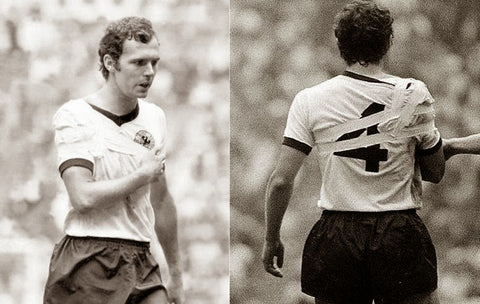
Franz Beckenbauer heavily bandaged with a broken collarbone still playing on vs Italy in legendary semifinal 1970.
Beckenbauer's captaincy of the German team in the 1974 World Cup remains etched in history, especially the memorable final against Johan Cruyff's "Clockwork Orange." As a player, he pioneered the libero position, excelling in a role he himself defined. He became the linchpin around which his team's strategy revolved, earning him the rightful place among the top five players of all time. The title "Kaiser" befit him perfectly.
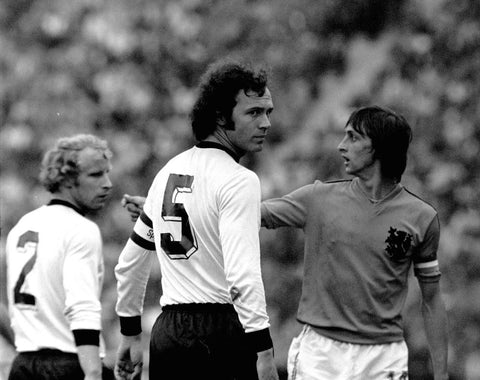
Born on September 11, 1945, in a humble district of Munich amid post-war Germany, Franz's footballing journey began with Bayern Munich. Despite initial doubts, he swiftly rose through the ranks, marking his Bundesliga debut in 1965. His elegant style, a departure from the norm, propelled him to greatness. As the libero, he led Bayern to numerous victories, clinching four Bundesliga titles (1969, 1972, 1973, 1974) and three consecutive European Cups (1974, 1975, 1976). His crowning achievement came in the 1974 World Cup, where he steered Germany to victory against Johan Cruyff's Netherlands, cementing his status as a football legend.
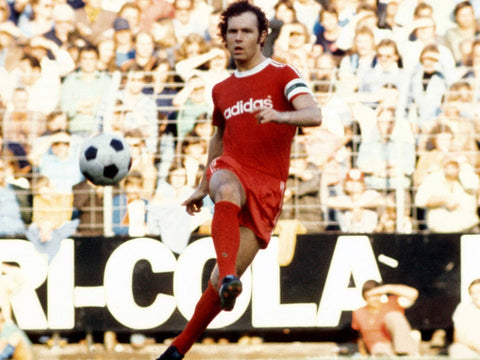
In 1977, Beckenbauer ventured to America, joining the Cosmos in New York alongside the legendary Pelé. He returned to Germany in 1982, concluding his career with Hamburg after winning his fifth RFA championship. Post-retirement, Beckenbauer seamlessly transitioned to coaching, guiding the German national team to World Cup victory in 1990.
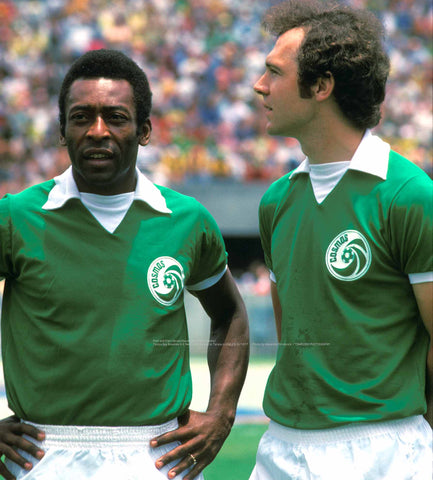
Beckenbauer's impact wasn't confined to the pitch; he became a beacon of inspiration. He continued to shape German football, leading Bayern Munich both on and off the field. His presidency at Bayern and vice-presidency at the German Football Association rekindled the club's lost brilliance in the 1990s. His influence also extended to international events, including energizing Germany during the 2006 World Cup.
Beyond his footballing prowess, Beckenbauer embodies the quintessential family man—a husband, son, father, grandfather, and a cherished friend. His multifaceted persona extends beyond the field, making him a popular figure in the media. Revered by his compatriots as the "player of the century," Beckenbauer's legacy transcends time. He remains an enduring icon in football, exemplifying unwavering determination, skill, and sportsmanship.
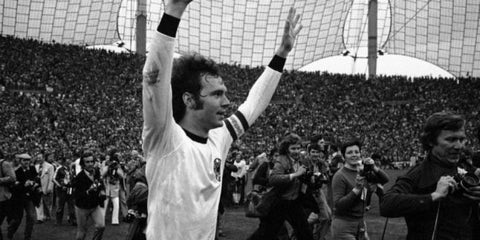
Off the field, Beckenbauer's impact was not confined to the sport itself. His success story inspired millions, showcasing the power of determination and passion. He proved that with talent, hard work, and innovation, one could achieve greatness regardless of their background or circumstances.
In addition to his contributions to the game, Beckenbauer also faced challenges. Throughout his career, he stood as a beacon of integrity, emphasizing the importance of originality and authenticity in football and beyond.
Beckenbauer's journey serves as a reminder that true legends are not just defined by their victories but also by the principles they uphold. His commitment to excellence, innovation, and authenticity has left an indelible mark on football and continues to inspire generations of players, managers, and fans.
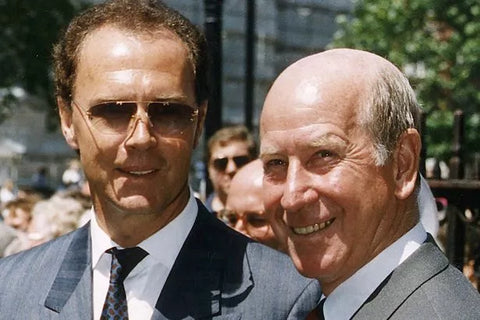
As we celebrate the legacy of Franz Beckenbauer, let us also uphold the values he cherished – the values of creativity, integrity, and the relentless pursuit of excellence. In a world often marred by plagiarism and imitation, Beckenbauer's story stands as a testament to the power of originality and the enduring impact of those who dare to be different.
Join us in celebrating the Kaiser!
Be a TENLEGEND®
